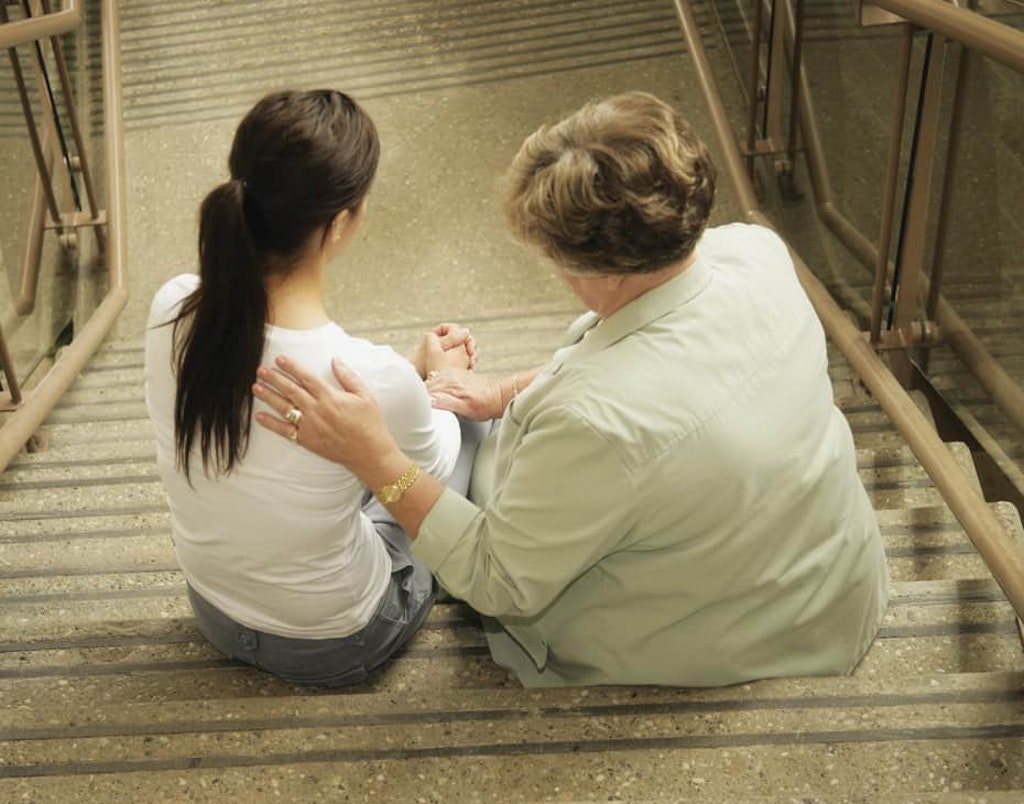MJHS Palliative Care

What is Palliative Care?
Palliative care treats the pain, symptoms and stress associated with a serious illness. A patient can receive palliative care at any age and any stage, whether the illness is terminal or not. Palliative care is not dependent on prognosis, and it does not replace a patient’s primary treatment. Instead, it works together with the treatment the patient is already receiving.
Although hospice care has the same principles of comfort and support, palliative care is offered earlier in the disease process. It can occur while the patient is still receiving curative treatment.
Learn more about the differences between palliative and hospice care.
Learn More about our Palliative Care Services
When is Palliative Care the Right Care?

If you or your loved one has been diagnosed with a serious or life-limiting illness, you may want to consider palliative care. The focus of palliative care is to relieve the pain and symptoms associated with your condition while you continue to receive curative treatment for your diagnosis.
Serious illnesses may include cancer, cardiac disease, respiratory disease, kidney failure, Alzheimer’s, HIV/AIDS, amyotrophic lateral sclerosis (ALS), multiple sclerosis, etc. Palliative care can be provided at any stage of illness and can be provided in conjunction with treatment meant to cure you.
Where is Palliative Care Provided?

At Home
Most patients prefer to receive palliative care in their homes. Still, when the home is not the optimal care location, we can provide palliative care in an assisted living community, a nursing home, our inpatient residence, or in various hospitals across the greater New York area.
No matter where you receive care, you can count on the MJHS Palliative Care team to provide specialists that patients and family members can go to, not only for care but for answers. We are here to provide the support and care you need.

Skilled or Assisted Living Facility
For our patients who are already living in a skilled or assisted living facility, our team can work with the facility to coordinate the best plan of palliative care. Providing palliative care at a skilled or assisted living facility does not take the place of the facility’s existing staff. We supplement the facility’s care and coordinate between doctors, nursing staff, the patient, family, and others to ensure you are always comfortable and your needs are being met.
Browse the list of facilities and nursing homes MJHS Palliative Care can provide care.

Hospital
If your symptoms become unmanageable at home, MJHS is contracted to provide our specialized palliative care services in various hospitals throughout the greater New York area. Our team will work with the hospital staff to ensure your comfort and closely monitor you. When your condition stabilizes, our team will work with the hospital discharge planner to ensure a smooth transition to the appropriate setting.
In order to continue to receive services from MJHS Palliative Care, you must be at one of our contracted facilities.
Your Care Team
You will be cared for by an interdisciplinary team of highly trained medical and clinical professionals. They will work together with you, your family, and your physician to develop a plan of care that provides comprehensive and compassionate care to help ease complex symptoms so you can feel confident about living each day to the fullest.

At MJHS, Palliative Care is a Medical Specialty.
Each of our physicians and nurse practitioners are board-eligible or certified in palliative medicine for either adults or children. They have extensive expertise in treating patients with a wide range of diagnoses including, but not limited to; cancer, advanced renal failure, HIV and neurodegenerative diseases such as dementia, multiple sclerosis and Parkinson’s.
Members of Your Care Team
The palliative care physician or nurse practitioner provides medical guidance and participates in care planning. They may make home visits as needed, and upon request can assume the role of primary care physician.
Your social worker offers emotional support through counseling one-on-one or in groups. They can also help you navigate personal, social and financial matters and are available to assist patients and families with advance care planning.
Depending on your care needs, a physical, occupational or speech therapist may provide additional specialized care for optimal function and safety.
Support and Specialty Care Programs

We also provide additional Support and Care Programs designed to assist with the physical, social, spiritual and emotional needs of patients and their families. Our Special Care programs are dedicated to providing care that is consistent with our patients’ values and beliefs and that respects past experiences and sensitivities.
Many of these services are not covered by insurance and are made possible by donations to our Foundation. We make an effort to provide them whenever possible because we know the difference they make in the lives of our patients and families.
Palliative Support Care
Ethics Review Committee
Provides extra support in understanding the different approaches to caring and how these choices fit with family values and beliefs. Working with you and your physician, we develop a Plan of Care but sometimes these care recommendations may cause families to have conflicting feelings based on their values and beliefs.
Special Care Programs
We understand that each family has its own special needs and sensitivities depending on their past experiences, family structure or religious beliefs. It is our responsibility to understand and recognize how these factors influence a patient’s behaviors and preferences and how they impact decisions regarding their care. Through continuous education, training and partnership with community organizations, we have developed standards of care that help address our
patients’ sensitivities, beliefs and preferences.
Some of these include:
We Honor Veterans
Recognizes Veteran patients who served the United States. This program was developed jointly between the U.S. Department of Veterans Affairs and the National Hospice and Palliative Care Organization with the mission of better addressing Veterans’ needs at this important time of life. The program provides compassionate listening and grateful acknowledgement of the Veterans’ mission to serve our country.
MJHS is the first hospice in the NY metropolitan area to earn Level 5 Partner status in the We Honor Veterans initiative.
LGBTQ+ Sensitive Care
Aims to create an affirming and welcoming environment for patients and families through education and advocacy. With partnership and education from SAGECare we hope to continue to set industry standards and best practices for the LGBTQ+ community.
MJHS holds a Platinum Level Credential with SAGECare in LGBTQ Aging Cultural Competency.
Jewish Program
Cares for Jewish patients in accordance with their individual, spiritual and religious beliefs. Some components of the program include:
- Halachic Pathway—assures Jewish patients and their families that a chosen rabbinic advisor (or posek) will be included in the medical decision-making process.
- Holocaust Survivor Care—provides gentle, loving, trauma-informed care from staff who are sensitive to the past experiences of Survivors.
We can also assist with funeral planning and coordination with the chevra kadisha in order to facilitate burial within 24 hours.
Palliative care may be given at any time during a person’s illness, from diagnosis on. The first step is to speak to your primary care physician. Once you have communicated your wishes, they may make a referral for services to begin.
Who Pays for Palliative Care?
If you have Medicare Part B (medical insurance), it may cover some medications and treatments that provide palliative care, including visits from doctors, nurse practitioners and social workers. If you are covered by Medicaid, a health insurance plan for people with low income and few assets, it may cover some palliative care treatments and medications, including visits from doctors. Medicaid does not use the term ‘palliative,’ so standard Medicaid benefits provide coverage.
Private insurance, HMOs, managed care programs.
Many private health insurance plans provide some coverage for palliative care as part of their hospice or chronic care benefits. If you own a long-term care policy, there may be palliative care benefits provided by that policy. Check with your health insurance or long-term care insurance representative.
If You Are a Physician
and would like to request a palliative care evaluation for your patient, we are happy to assist. You can call us at 877-218-0230 or fill out our form and we will be in touch right away.